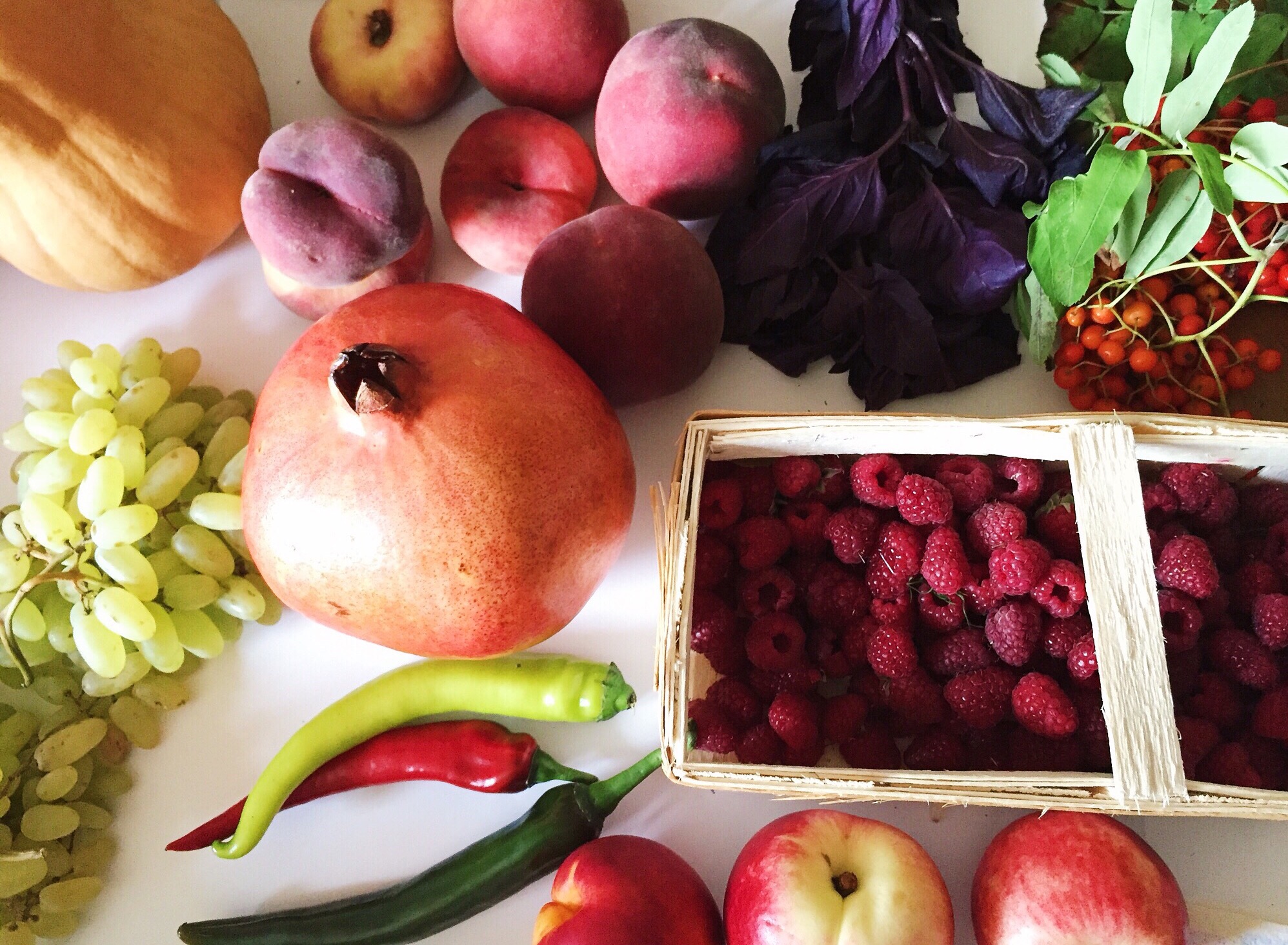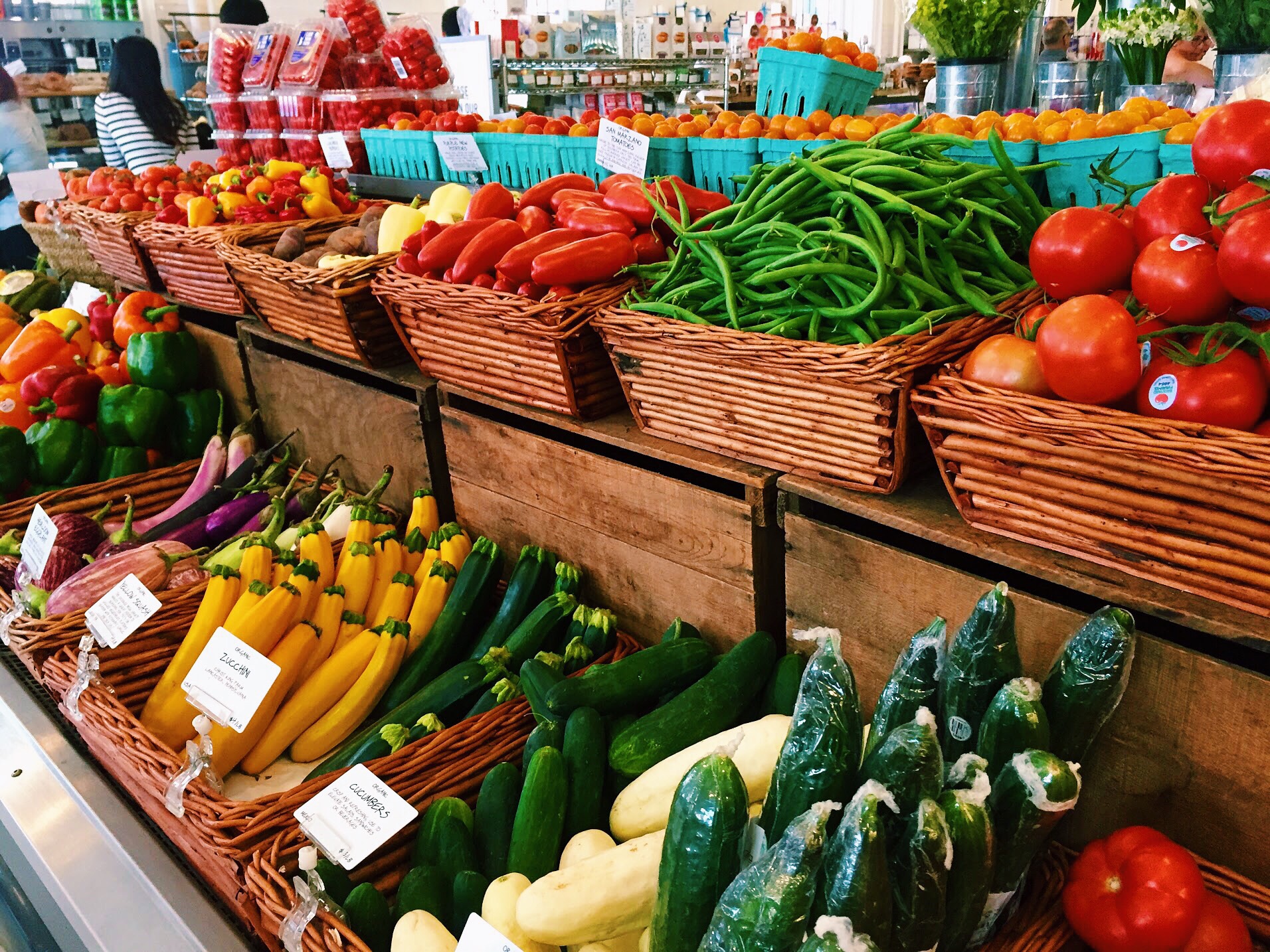
Nutritionists, home economists, and foodies all tout the practice of eating seasonally. Read on to find out why eating with the seasons will make you —and the planet — happier, healthier, and richer.
While the modern luxury of having any food we want when we want it may seem like a great way to eat in this age of the bespoke, curated, and customized, we may be cheating ourselves by insisting on choice when it comes to what’s on our plates. Until recently, everyone on the planet ate what was grown locally, and in season. Our grandparents never dreamed of eating strawberries in February, and were surprised to receive a single unexpected (read: expensive) orange in the toe of a Christmas stocking.
Technology changed all that. Trucks and planes transport fresh fruits and vegetables across the globe in a matter of hours or days, chemical methods slow and speed the ripening process of fresh foods, and factory farms and antibiotics make large-scale meat production possible. But are the sacrifices worth it? The seasonal food movement, popularized in this country by chefs like Michael Pollan, author of The Omnivore’s Dilemma and star of the Netflix docu-series Cooked and Mark Bittman, author of Mark Bittman’s Kitchen Express: 404 inspired seasonal dishes you can make in 20 minutes or less, says no.
Proponents of eating with the seasons cite four major reasons for choosing to eat what’s grown fresh, when it’s grown fresh: A low carbon footprint for the planet, minimal impact on your shopping budget, optimal health for the body, and sheer deliciousness of food at its prime.
Eating Seasonally is Good for the Earth
The Cleveland Clinic reports in its wellness blog that the practice of eating foods grown locally, and therefore in season, is “good for the environment.” It supports small and midsize local farmers, cuts down on pollution from shipping and trucking food and reduces your carbon footprint. We spoke to a Manhattan-based certified holistic health counselor, Natasha Zarrin, who wholeheartedly supports the idea of choosing to eat in a way that’s sustainable for the earth. “I love that there is almost no carbon footprint in terms of transportation,” she said about shopping at The Union Square farmer’s market, an open-air emporium in the center of New York City. “I love to support local farmers, I love the idea of having food in my hands that was never in a package.”
When Food Is Best, It’s Cheapest

The Cleveland Clinic blog also mentions the economic benefits of eating seasonally. Chef Gregg Berk of The Marshal, a foodie favorite restaurant in New York City’s Hell’s Kitchen, is familiar with the cost-saving benefits. “When food is in season,” he explained, “there’s more abundance and it’s cheaper.” His restaurant’s mission is to support local farmers, distilleries, and vintners while leaving a low carbon footprint and serving up what’s sourced nearby, which means it’s vital to choose food that’s suitable to the time of year.
Moreover, part of a chef’s responsibility is to innovate great-tasting dishes while keeping costs in check. For Berk, that involves designing a menu around what foods he can get locally, when they’re at their prime and therefore, at their lowest price. As winter is waning into spring, Berk shared that he’s been creating dishes with a lot of parsnips and turnips, and is enjoying offering braised lamb shanks. “Based on what we can get our hands on, we’re changing the menu every three to four weeks.”
Seasonal Eating is Best for the Body
As a consultant who focuses on using food as medicine, Zarrin laments that we, as a society, are becoming more removed from nature, and she says that traditional Chinese medicine focuses on eating with the seasons.
“Real food gives you more energy…allowing your body to do other work that it needs to do such as fighting viruses, healing wounds, and allowing you to sleep well. The effects of eating fresh, seasonal food are cascading. The energy begets energy because of repair, fighting inflammation, and fighting illness. If the quality of the ingredients going into your body are the best they can be, the more efficient your body can be.” As you probably already know, “Eating fresh mushrooms sautéed with garlic is better than eating a commercial veggie burger.”
Eating What’s Fresh Now Means Tasting the Top Flavors
Eating the freshest of the season, when fruits and vegetables are bursting with flavor, color, and scent is a delight for the senses, Zarrin shared. “When you have a good apple in September, or the strawberries and tomatoes you get in June, they are so good they’re like delicacies. Once you have had food at it’s prime, it’s just not the same. Having these foods at other times of the year is not even worth it.”
As a chef, Berk wouldn’t have it any other way. “The customers tell me that they can taste that my food is fresh from the farm. One customer told me that the flavor of the lamb was so great, and she wanted to know how did that happen. I told her we get our meat from local farmers who care. Small farmers are watching over these animals, making sure they’re healthy, and that they’re happy before they’re killed. When you care that much, it comes into the taste.”
He agreed that food out of season isn’t worth eating, from a taste standpoint. “The other day, my daughter came home with some strawberries from Mexico, and they had no flavor. The natural flavors didn’t develop, the sugars didn’t develop, and they weren’t as red as they should have been.”
When asked what he’s waiting for now, he said he is really looking forward to cooking with the first ramps of spring. “And fresh berries,” he told us with anticipation in his voice. “I cook them down, and make this great sauce for fish. And fresh berry shortcake. People love it. We do it with a balsamic whipped cream. It’s delicious.”
So, for your wallet, the earth, enjoyment, and even your health — there’s a great case to be made for thinking globally, and eating locally.



